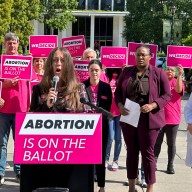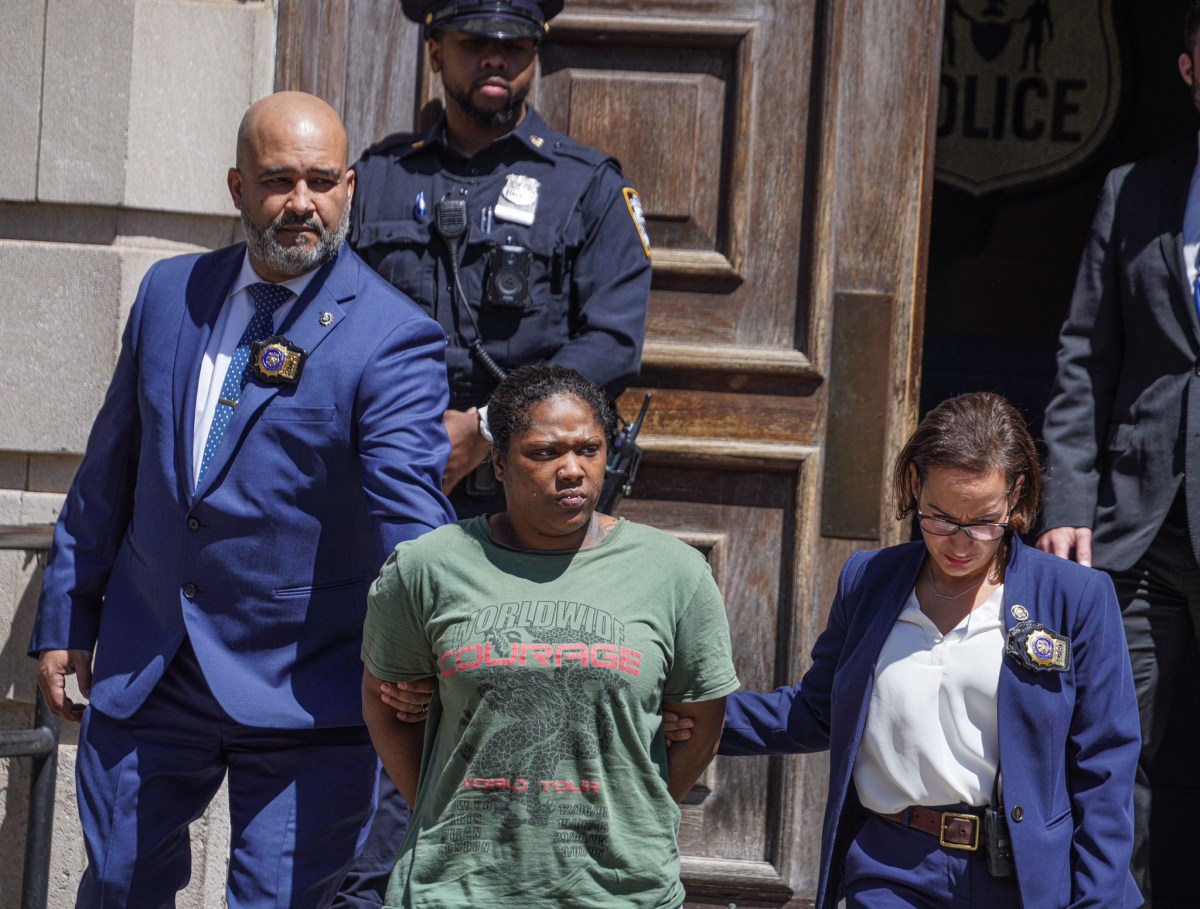 Mayor Elect Bill de Blasio announced his new schools chancellor Carmen Fariña at a middle school in Brooklyn.
Mayor Elect Bill de Blasio announced his new schools chancellor Carmen Fariña at a middle school in Brooklyn.
Credit: @BilldeBlasio/Twitter
Mayor-Elect Bill de Blasio on Monday finally announced his much-anticipated pick for schools chancellor, with a little less than 48 hours to go before he officially takes office.
De Blasio appointed Carmen Fariña, 71, to head up the city’s public school system, and spoke effusively of her 40 years of experience in New York City public schools and, in particular, his relationship to her over the years.
The two met when he was first in elected office in District 15, where she was the school superintendent.
As to why it took so long to appoint someone so perfect for the job, de Blasio said the deliberation was necessary.
“To me, this is literally one of the most important decisions I’ll ever make as mayor,” he said.
He said the transition team looked at candidates from all over the country but “everytime I looked at different people, different options, I kept coming back to Carmen Fariña.”
De Blasio spoke especially proudly of the fact that Fariña will be the first educator to lead the city school system in 15 years.
Fariña started out as a teacher and rose through the ranks to a principal, a superintendent of a school district, and finally to a position as a Deputy Chancellor in the Department of Education under Mayor Michael Bloomberg. She retired from that position in 2006.
De Blasio said Fariña left the Bloomberg administration over a “crisis of conscience,” but Fariña alluded to health issues and suggested her reasons were more personal.
“It was a time in my life when my husband had given up a lot because he wasn’t seeing me,” she said.
She pointed out that she stayed involved in education issues, and attested that the pro bono work she did for principals and schools that reached out to her made her “actually better informed by having been in the insude as well as the outside.”
That bit of diplomacy, however, was a rare moment in a sea of sniping at Bloomberg and the way his administration approached the school system.
Fariña said it is “such a privilege to be able to come back to a system that has so much work yet to be done, but to be doing it from a stance of a progressive agenda.”
And in an apparent jab to the data-driven Bloomberg, de Blasio discussed how “gratified” he is as a parent that the school system will have a chancellor who “cares” and “can tell exactly what teachers, principals and parents are going through without research.”
“She knows it because she’s lived it,” he said.
Bloomberg’s decision to bring the school system under mayoral control is generally lauded as crucial to establishing greater accountability and cutting bureaucracy to enable real change and improvement to the school system for the first time in decades.
But de Blasio, ever critical of Bloomberg’s closure and colocation of failing schools, insisted that he’s “said very clearly [he’s] going to institute a moratorium on [school] closures and co-locations,” though he said he’s “not sure about ones currently in the pipeline” that the Bloomberg administration has set in motion.
“We’re not going to end that moratorium until there’s a system that actually respects the parents and the whole community,” de Blasio declared.
De Blasio and Fariña frequently criticized the status quo for the lack of parental and community involvement in school decision-making, one of the major complaints about Bloomberg’s more stream-lined system.
“We’re going to have a system here where parents are seen as partners,” Fariña agreed.
De Blasio said little, if anything at all, positive about the current school system, and in a Bloombergian nod at data, noted that “only 22 percent of those [high school students] who graduated on time [last year] were deemed college ready.”
The Bloomberg administration noted that de Blasio’s statistic is state data, which assesses college readiness based on Regents scores. The city measures college readiness based on Regents and a variety of other factors, including AP test scores and SAT scores. By the city’s methodology, 31.4 percent of on-time graduated were college-ready.
Bloomberg spokesman Marc La Vorgna pointed out that the college readiness scale was only established in 2005, and insisted that every year since then, they’ve seen improvement.
“We’ve raised the standards for success and kids continue to meet them and improve,” La Vorgna said.
Over the last few weeks, Bloomberg has repeatedly touted statistics of school improvement over the last 12 years. As with most facets of city life, he has lauded the work done by his administration to establish a foundation of success and improvement, while maintaining that there is still work to be done.
While there’s still plenty of room for improvement,” he said in a radio address on Dec. 8, “the next Administration is inheriting public schools that are undeniably headed in the right direction: Steadily upward.”
Follow Danielle Tcholakian on Twitter @danielleiat
















